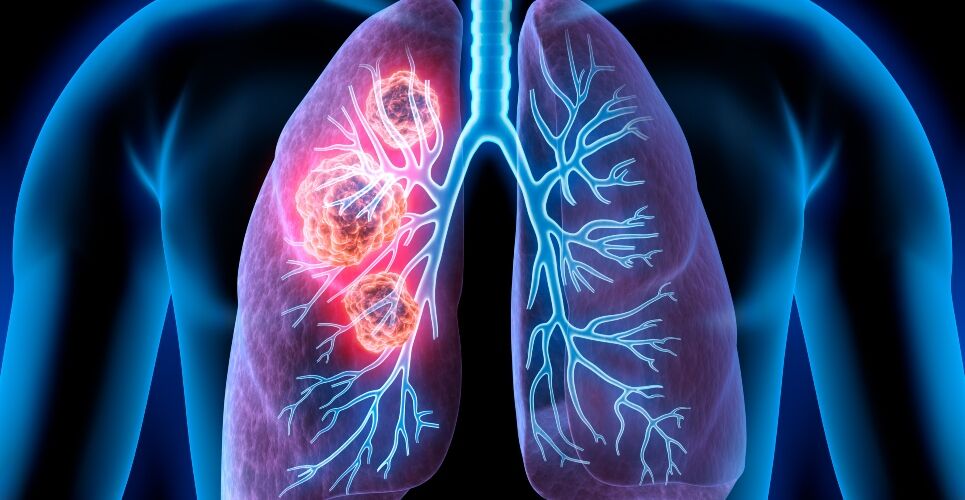Conditional marketing authorisation has been granted for adagrasib (brand name Krazati) by the UK‘s Medicines and Healthcare products Regulatory Agency (MHRA), its manufacturer Mirati Therapeutics has announced.
Adagrasib is a monotherapy indicated for the treatment of adult patients with advanced non-small cell lung cancer (NSCLC) with KRASG12C mutation who have progressive disease after prior therapy with, or intolerance to, platinum-based chemotherapy and/or anti-PD-1/PD-L1 immunotherapy.
The KRASG12C protein causes the cancer cells to grow out of control and it regenerates every 24-48 hours. Adagrasib is a highly selective and potent oral small-molecule inhibitor which is optimised to sustain target inhibition. attaches to the protein and stops it from working, which may slow down or stop the growth of the cancer.
The drug is available in 200mg tablet form, with the recommended dose of three tablets taken at the same times twice a day.
The MHRA approval was based on the results of the KRYSTAL-1 open-label Phase 1/2 multiple-expansion cohort trial evaluating adagrasib as monotherapy and in combination with other anti-cancer therapies in patients with advanced solid tumours harbouring the KRASG12C mutation.
In the trial, adagrasib was found to be a central nervous system (CNS) penetrant, which may be important given that CNS metastases frequently occur in NSCLC and lead to poor prognosis, Mirati Therapeutics said.
In a presentation at the recent European Society of Medical Oncology Congress, the company also shared data from the KRYSTAL-7 trial which demonstrated compelling efficacy and safety of adagrasib in combination with pembrolizumab in NSCLC.

Commenting on the approval, Dr Shobhit Baijal, consultant medical oncologist at The University Hospital Birmingham NHS Trust, said: ‘Some 14% of people living with NSCLC harbour the KRASG12C mutation yet there are limited targeted treatment options for patients with this devastating disease.
‘The expansion of treatment options for NSCLC benefits patients and clinicians alike. As someone intensively involved in the management of lung cancer patients, I look forward to Krazati being available for use in clinical practice.‘
NSCLC accounts for approximately 80-85% of the 43,000 lung cancer cases in the UK each year and an estimated 13-14% of these produce the KRASG12C protein.
In July 2023, the European Medicines Agency issued a refusal of the conditional marketing authorisation for adagrasib after its ‘human medicines committee (CHMP) noted that comprehensive data for this medicine were not yet available and that there were uncertainties about how well the medicine worked‘.
The EMA concluded that Mirati Therapeutics did not provide evidence that the drug fulfils an unmet need for the type of approval it sought. The EMA therefore ‘could not justify making the medicine immediately available to patients while further data were still awaited‘.
Mirati Therapeutics disagreed with the opinion and intended to request a formal re-examination.
In the US, adagrasib was previously given accelerated approval by the FDA in December 2022.

